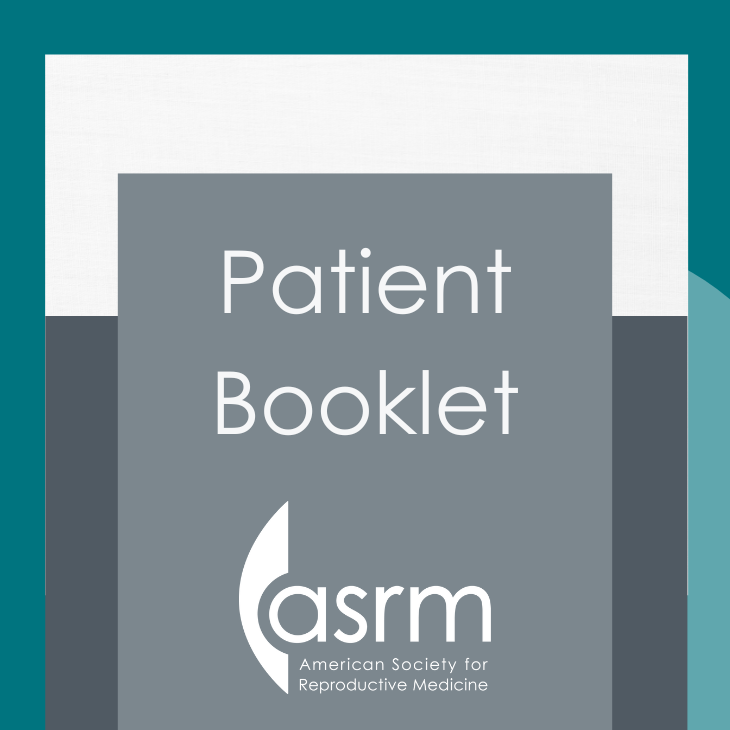
AVOIDING CONFLICT IN THIRD-PARTY REPRODUCTION
Revised 2023
What is “third-party reproduction”?
Third-party reproduction is an arrangement where a person or couple receives help from other(s) to have a child. This help can be in the form of donated eggs, sperm, or embryos; carrying the pregnancy; or a combination of these types of reproductive assistance. The person(s) who will raise the child after birth is called “intended parent(s).”
The third-party is involved in the reproductive process only and does not participate in the raising of the child. Third-party donors can be someone the intended parents know, or they may be non-identified. The person who is donating sperm, eggs, or embryos, or carrying the pregnancy (gestational carrier) is called the “third party.”
Who else is involved?
Third-party reproduction is becoming more common and gives more individuals or couples a chance to build their families. It also involves attorneys, doctors, and sometimes donor agencies. However, including a third party into an individual’s/couple’s reproduction can also make it more complicated if conflicts arise among the various parties. Attorneys who are familiar with federal and state laws about reproductive medicine draft contracts between the third party(s) and intended parent(s). Doctors coordinate the medical care for the intended parent(s), gestational carrier if used, and, sometimes, the donor(s). Donor agencies can be used to provide the sperm, eggs, or embryos for the intended parent(s).
What is the typical process for using a third party in reproduction?
There are three main steps in third-party reproduction. First, intended parent(s) are evaluated by a healthcare professional to discuss potential options. Next, the intended parent(s) will decide whether to use a known or non-identified donor(s) and/or a gestational carrier. Finally, legal documents are signed that outline the rights and responsibilities of the donor(s) and/or gestational carrier, intended parent(s), and other involved parties.
Psychological counseling before donation and gestational surrogacy is strongly recommended, and often required, for intended parents, donors and gestational carriers.
Conflicts
Despite this careful planning, sometimes during third-party reproduction, situations occur, or information is discovered that affects the outcome and may cause medical or legal problems in the future.
As with any situation that involves more than one person, conflicts or disagreements can come up. Third-party reproduction can be an emotionally charged arrangement. It is helpful to know what kinds of conflicts can occur so they can be avoided or minimized:
Conflicts involving egg, embryo, or sperm donors:
Example: A sperm donor may decide later that he wants to parent the child as his own.
Example: An egg donor may lie about how many times she has donated in the past.
Conflicts involving gestional carriers:
Example: A gestational carrier may purposefully lie or not disclose relevant medical information that may be important to the health of the pregnancy.
Example: A gestational carrier may use harmful drugs or engage in high-risk lifestyle behaviors not suitable for a healthy pregnancy.
Conflicts with the intended parents:
Example: The intended parents may decide that they plan to divorce prior to the birth of their child, but the gestational carrier made it clear that she agreed to do this only for a stable, married couple.
Conflicts with the physician:
Example: The physician may not tell the intended parent(s) health information that is discovered about the gestational carrier that could affect the outcome of the pregnancy.
Conflicts with the donor agency or attorneys:
Example: The agency may not make an agreed-upon payment to the gestational carrier after she has begun the medical process.
Example: Attorneys may say that they are experts in this type of agreement, but, in reality, may not be familiar with unique state laws and unknowingly leave out important parts of a third-party reproduction contract.
What is the best way to avoid these conflicts?
Be informed.
Everyone involved (physician, intended parents, donors, gestational carriers, agencies, and attorneys) must read the consent forms and contracts in detail.
Be transparent.
Everyone involved should be honest and forthcoming about their qualifications and expectations surrounding the arrangement.
Express concerns.
If there are any doubts or concerns, it is important to bring these up early in the process.
Ask and document.
It is common to request that all of the donor’s or gestational carrier’s medical information be disclosed and have the donor or gestational carrier sign a legal contract that documents this.
Keep an open dialogue with your physician.
If a physician learns of any medical problems with the donor or gestational carrier that may affect the process, it is generally accepted that this will be told to the intended parents. This means that the physician will tell the intended parent(s) everything needed to give the best possible chances of a healthy pregnancy. If the physician learns of any information about the intended parent(s) that may affect the contract with the donor or carrier, this information may also be disclosed.
Use experienced professionals.
Finally, it is extremely important that the attorney and/or agency being used has experience with this type of contract and is licensed to do such. Surrogacy laws vary by state and in some states, surrogacy is not legal.
Fact Sheets/Booklets
View more fact sheets and booklets written by the ASRM Patient Education Committee.
Third-Party Reproduction
The phrase “third-party reproduction” refers to involving someone other than the individual or couple that plans to raise the child (intended parent[s]) in the process of reproduction.
Menopausal Transition (Perimenopause): What Is It?
The menopausal transition (perimenopause) is the period that links a woman’s reproductive (childbearing) years and menopause.
Am I Ovulating?
Ovulation is the release of an egg from a woman’s ovaries and is essential for getting pregnant.Third-Party Reproduction
Find a Health Professional











